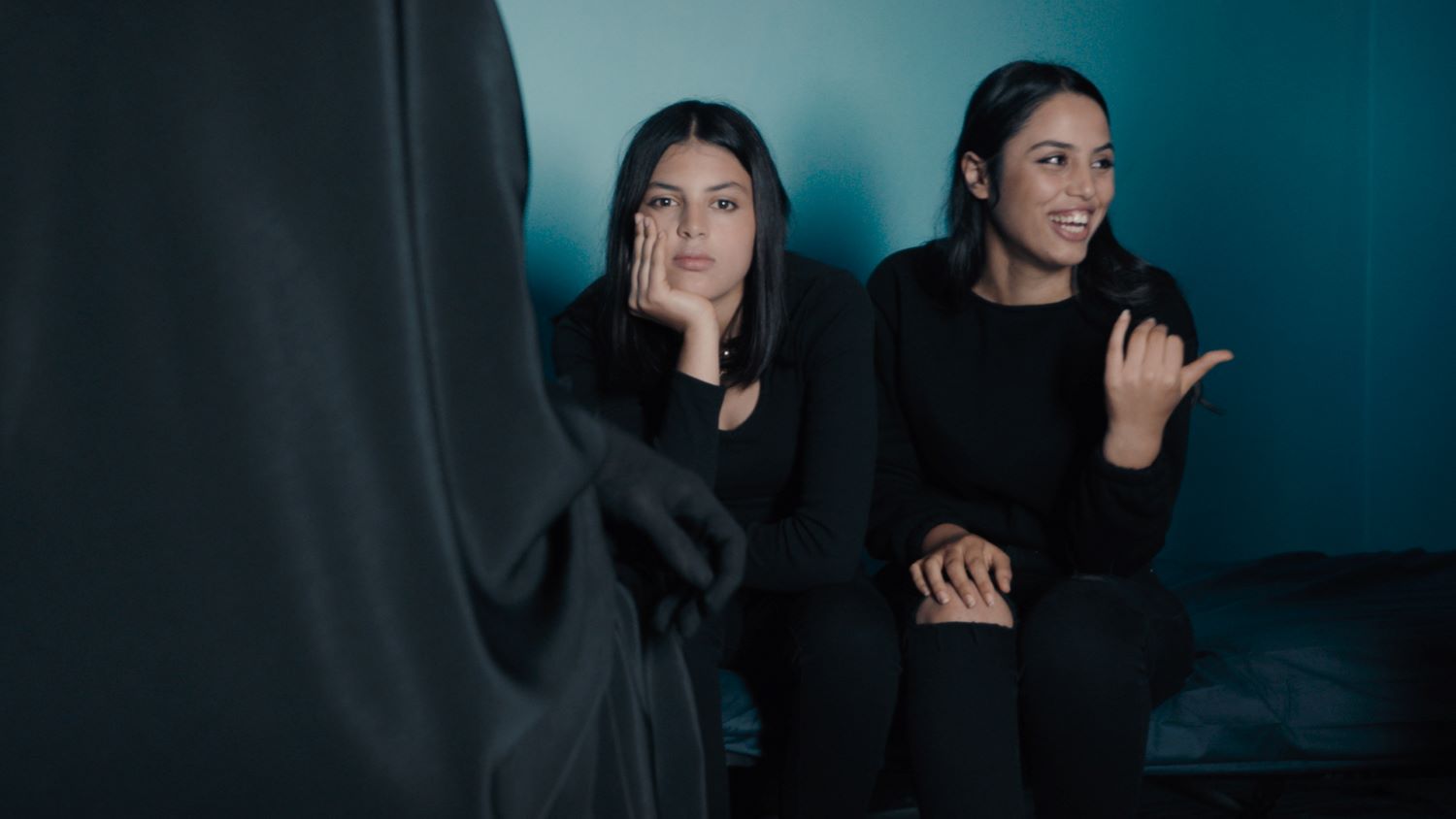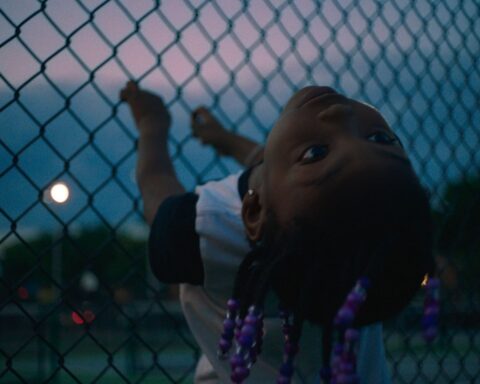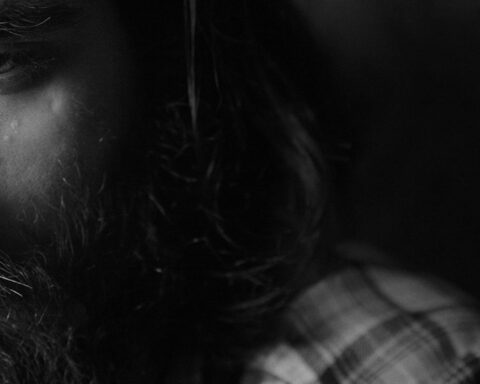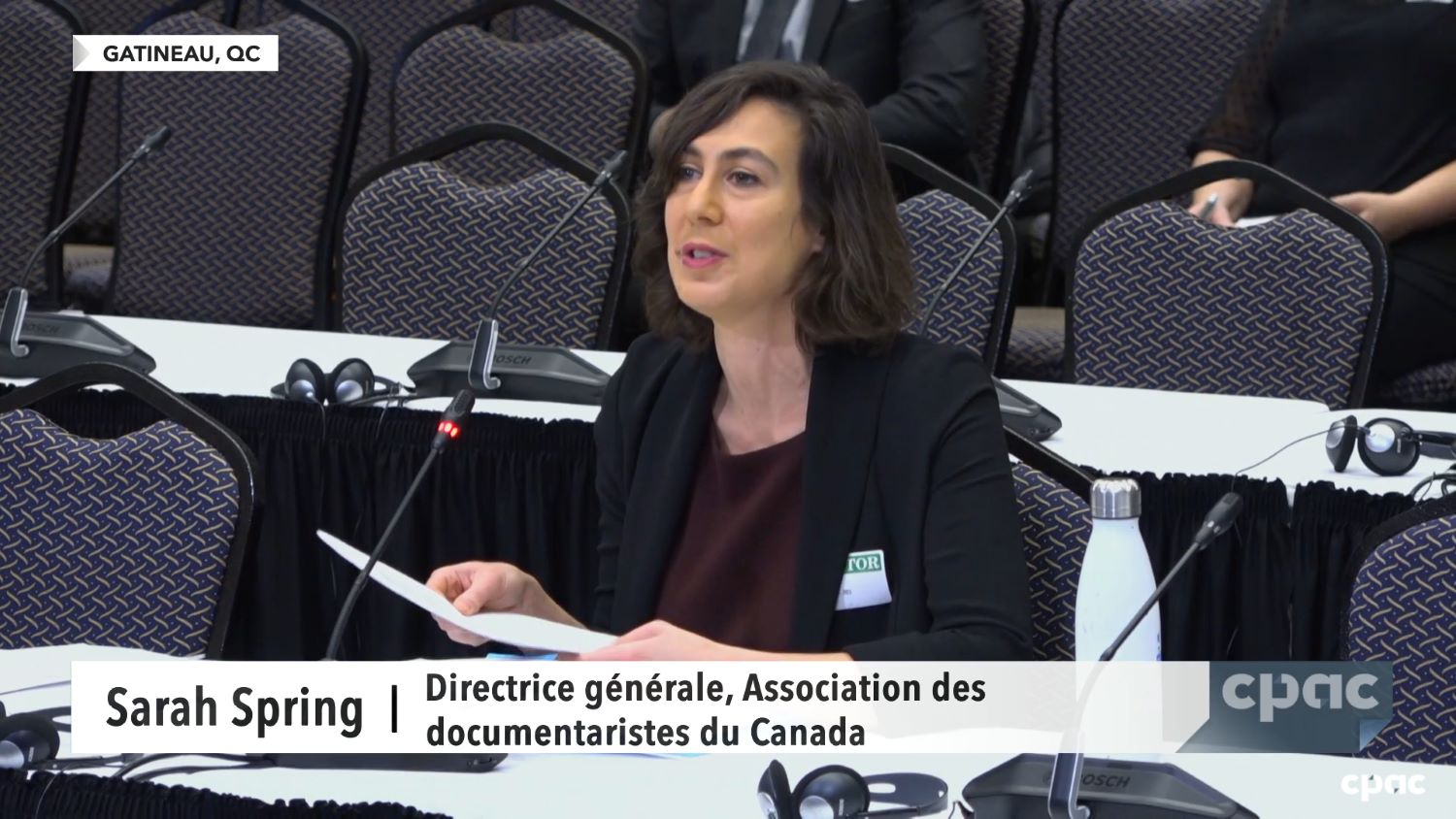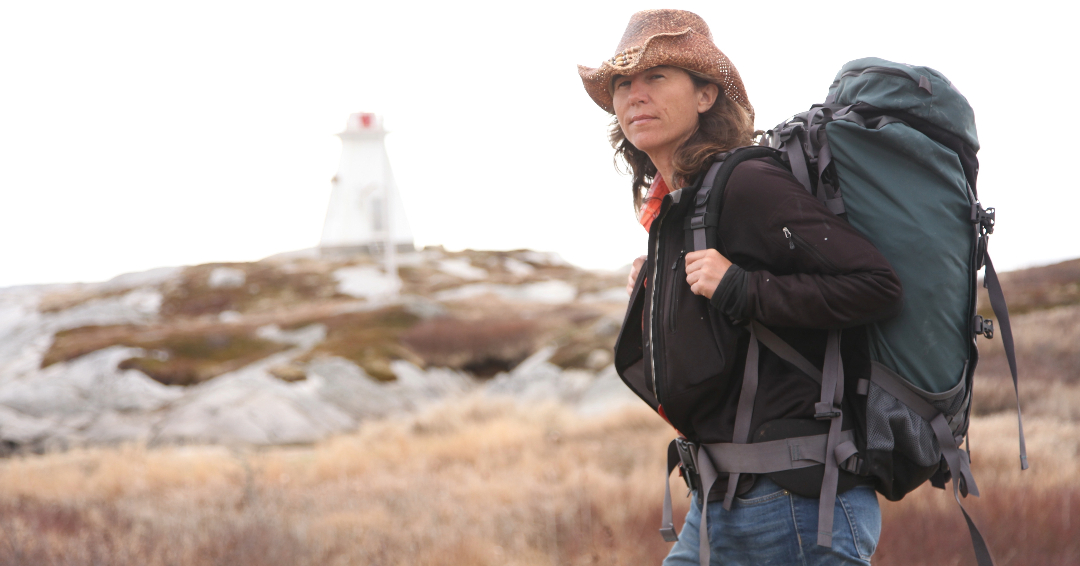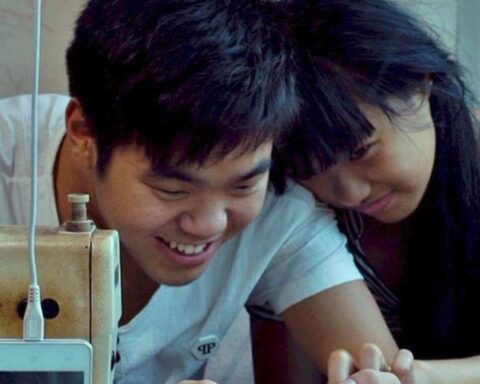Tunisian filmmaker Kaouther Ben Hania has made a career of making subtle, sophisticated films that speak to the complexities of her communities. She has represented her country numerous times as an official Oscar submission, from celebrated dramas such as Beauty and the Dogs, which played Cannes in 2017, to 2020’s The Man Who Sold His Skin, which debuted in Venice and went on to score an Oscar nomination for Best International Feature.
Her latest film, Four Daughters, which is Tunisia’s official submission for the Best International Feature Oscar, may conveniently be described as “hybrid doc,” but given how beautifully the story is told and the sophistication of its unfolding through a fusion of documentary and performance, it seems churlish to dump it into that ragged category. Premiering in competition in Cannes this year where it shared the l’Œil d’Or with The Mother of All Lies, Ben Hania’s film provides a deeply moving and equally unsettling look at a family’s struggle, with two daughters who have left to join ISIS, and the other two making sense of what their siblings have done.
Ben Hania employs actors to play the absent sisters not for the sake of straightforward recreation, but as a narrative and investigative tool to get the subjects to open up. While this easily could have appeared exploitative or crass, the result has breathtaking results. It’s a deeply nuanced take that showcases how beneath the surface of these stories are complex, three-dimensional individuals that in no way conform to simplistic or jingoistic ideas of their motivations or their behaviour.
POV spoke with Ben Hania at the Red Sea Film Festival following her red-carpet premiere here in the Kingdom, one that itself has a long and bitter relationship with truth tellers. There is perhaps no more fitting location for a film that seeks to shine truth on complicated situations that are often silenced, hopefully sparking in locals even a small glimpse into the mechanisms for open dialogue.
POV: Jason Gorber
KBH: Kaouther Ben Hania
The following has been edited for clarity and concision.
POV: You’ve previous talked at length about how you went into the project not necessarily wanting to do a “hybrid doc,” but you ended up having somewhere between recreation and interrogation between actor and the subject. Can you talk about that journey and your feelings about this trend to dance the line between performance and non-fiction?
KBH: When I started, I was thinking about “normal” documentary, more of a fly on the wall work where I would be filming the mother and the two youngest daughters and their home, filming the absence of the other daughters. I started filming and I realized it wasn’t good enough, finding that this process wasn’t able to show the complexity and the multilayered aspect of the story and this family. I was feeling that I was a very bad director, and while I was passionate about this story, what I filmed was so horrible that it didn’t do it justice. The project was very difficult: it’s like a minefield. I had a lot of doubt, but I have doubt in every project. So I went off to make The Man Who Sold His Skin, and when I finished, I went back to Four Daughters. In order to have a fresh [perspective], I realized what I needed to tell this story was to have access to the past of this family. There is one way to do it in documentary, and this way I hated, which was reenactment.
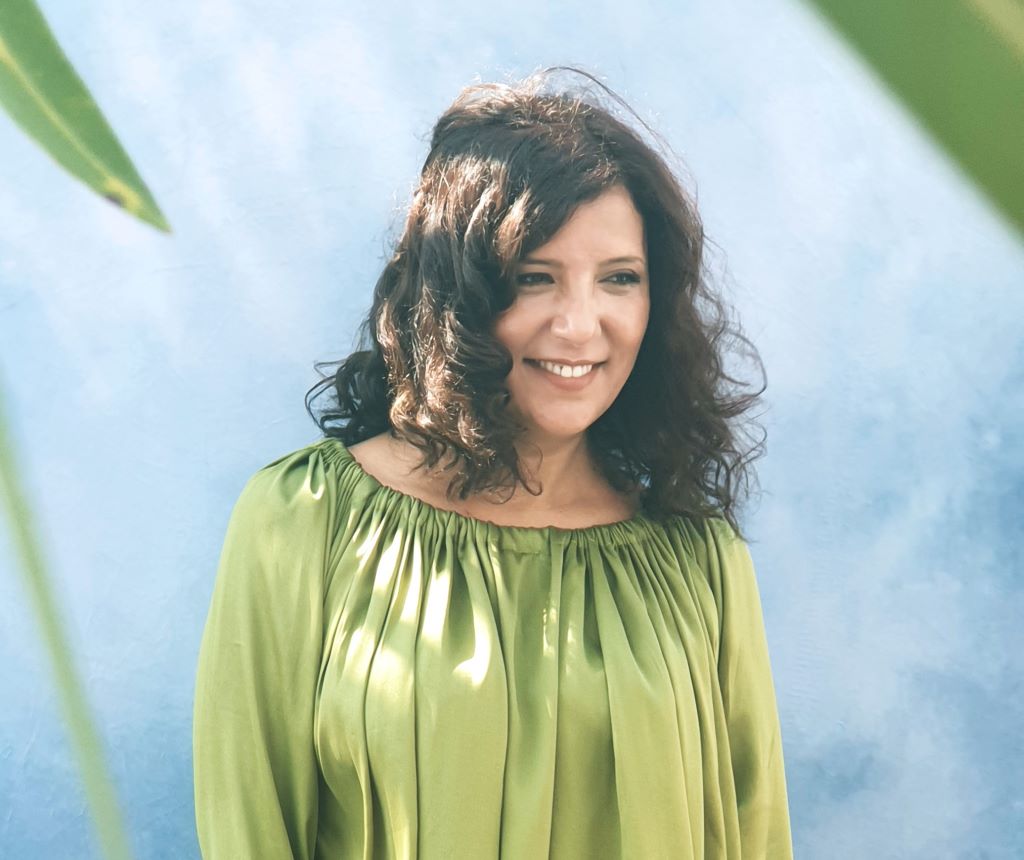
POV: Were there specific aspects of reenactment-based films that you were specifically trying to avoid?
KBH: When we talk about classical reenactment in documentary, especially story documentary, things like The Romanovs, all these Netflix things, it’s bad. We say it’s a documentary, but it’s not, it’s just fiction. Just because you put a reenacted scene and then you put a historian talking about what happened, that doesn’t suddenly became a documentary. For me, that’s a forced labelling upon the thing.
POV: Of course, Nanook of the North started it with recreations, so it’s not like it’s not baked into non-fiction. What I think your film does incredibly well is that you use your actors essentially not only to “recreate,” but also to interview, to interrogate, to be your voice in many ways, as a director.
KBH: …And the audience’s voice
POV: And the audience’s voice most importantly! Were there films that you knew had done that successfully? How did that come about?
KBH: I wanted to hijack how reenactments work, to find a new way of using this device but in a way that I can tell my story in a better way. Actors ask a lot of questions, so I told myself, I won’t do classical reenactments—I’ll let the actors, while reenacting, ask their questions about the characters and motivation. That lets the real characters, the mother and the two daughters, direct them. I took the reenactment and I put it in a Brechtian theatre mode, with distance in the scene going out of the scene. It’s a movie telling everybody that it’s a movie, and there’s no fourth wall. The actors arrive and say, “We are actors, we are real characters.” This meta-aspect can allow me, because all of those things are tools, to show the complexity and all of the elements and levels of this story.
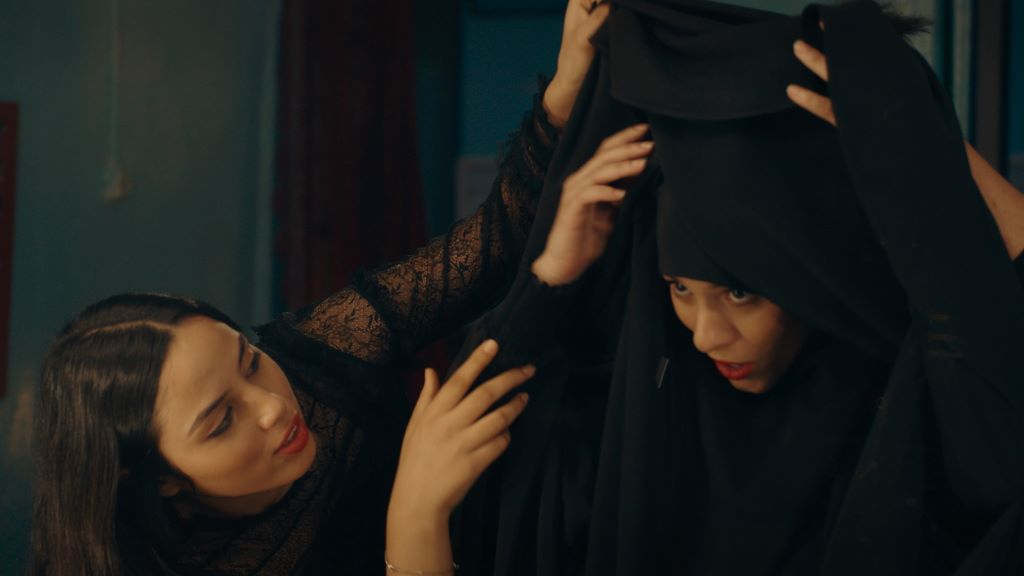
POV: There are obvious recent examples like Kate Plays Christine or Casting Jon Benet that play with these elements, but for me, your work is far more sophisticated and effective. What, if any, other films did you look at for inspiration in overcoming the more traditional “recreation” mode?
KBH: The first movie that made me think about how to deal with this kind of writing and cinema is Close-Up by Abbas Kiarostami. That film is a masterpiece narrating a story about the love of cinema, and it was mind-blowing me. I haven’t see a lot of movies that have followed the lead of Close-Up, because this kind of movie is risky to and is not an easy thing. There are not so many of them. You talked about Robert Greene, as he did Kate Playing Christine and his last movie, Procession. There’s Guy Maddin, the great director of the Canadian film My Winnipeg. You also have also The Act of Killing by Joshua Oppenheimer, which was, for me, mind blowing.
POV: You are dealing with a family, with the truth, and with a subject matter that by itself seems to elicit no sense of nuance. If a mother beats a child, she is a terrible mother. If a child joins ISIS, that person is a terrorist. These are very black and white, and yet your film encourages us never to soften whatsoever the trauma, the horror, but equally to still find a coherent humanity. You are from a region that has a very complicated history and you bring this film to France. On a personal level, what did this film teach you about storytelling? What did it teach you about navigating these worlds of trying to understand the complexity of humanity?
KBH: As you say, I was trying to show complexity because we, human beings, are very comfortable with putting labels on things. Even me.
POV: Fiction, non-fiction, yet more labels.
KBH: Exactly. We perceive reality because our brain is made like this, siphoned through labels. When you put a label on things, you already have a preconceived idea. What I love in documentary is that you take your camera and say, “I’ll watch this reality, I’ll record this reality, you understand that the reality is not like this. It’s not about one side.” You start moving, you can see all the angles. The journey challenged my own preconceived ideas. I do documentary like a sport, for mental health, to challenge my preconceived ideas and those of the audience.
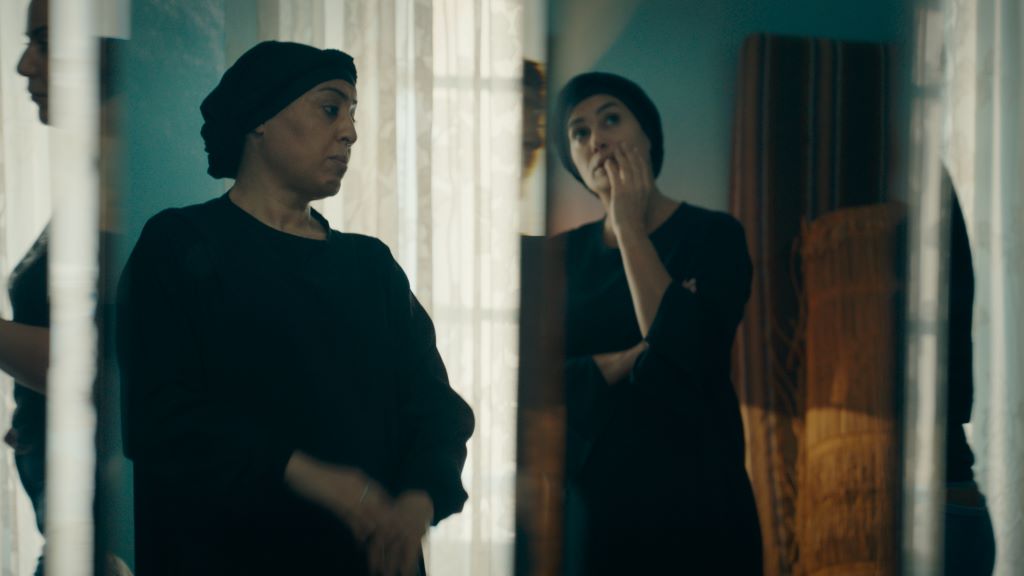
POV: How did the film play in Tunisia? What was it like being in competition at Cannes?
KBH: The movie in Tunisia went very well. I think it’s still playing in theatres, and what is wonderful is that it’s used as a tool to prevent child abuse. It’s being screened by the government, by the Ministry of Women and Children, which is great. At Cannes it was totally, completely crazy. I never thought of this movie for Cannes, because they are not “documentaryphillic,” let’s say. I mean, they have documentaries, but not in the main competition. This year, they had two documentaries in the main competition, so it was great and totally crazy. [The other was Wang Bing’s Youth (Spring).]
POV: And one of them was a masterpiece.
KBH: Ok, don’t say whose! [Laughs.] It was totally crazy and being there with the actors, the real characters, doing the red carpet, going to the theatre with 2000 people watching the movie was totally insane but was totally beautiful.
POV: What’s it like bringing a film about the complexity of children going to ISIS to Saudi Arabia?
KBH: I was very excited to show the movie here because I’m trying to do movies for everybody, for wide audiences, but in my heart, I’m very curious about our regional Arabic background because I’m telling stories from inside. It’s very important to have local feedback. At the screening I felt the emotion inside the theatre. I had a lot of young Saudis talking to me afterwards, telling me how much they loved the movie and how much they saw themselves in the movie. There was a very strong connection, so I was really happy and touched.
POV: You are your country’s Oscar submission, may you get the shortlist and you’re in the mix for both International Feature and Documentary, which is remarkable. As you are on this journey, how have you found these disparate audiences responding to the film? Some I assume get it, and some are only getting it superficially?
KBH: What is amazing is that I didn’t find that people are getting it superficially. I was in New York, in Los Angeles, in San Francisco, I was in Belgium—mainly in Western countries—and then Tunisia and now Saudi Arabia. I can tell you that the questions are the same. When I have a Q&A, this became a joke between me and my producer: everywhere there are the same kind of reactions. It is very interesting.




